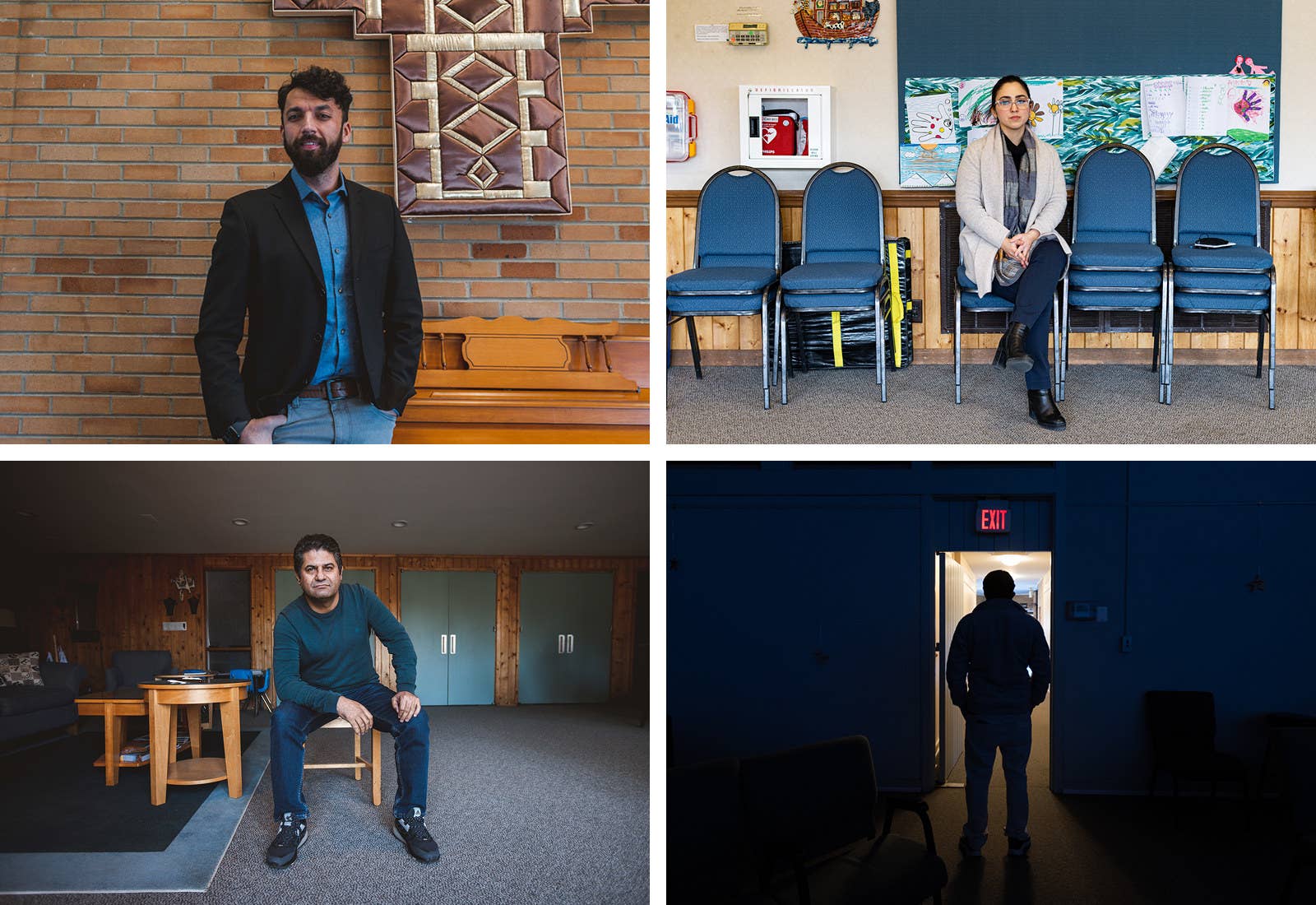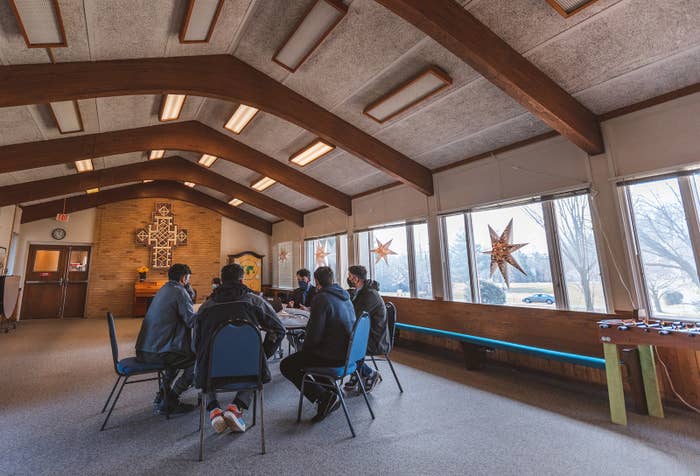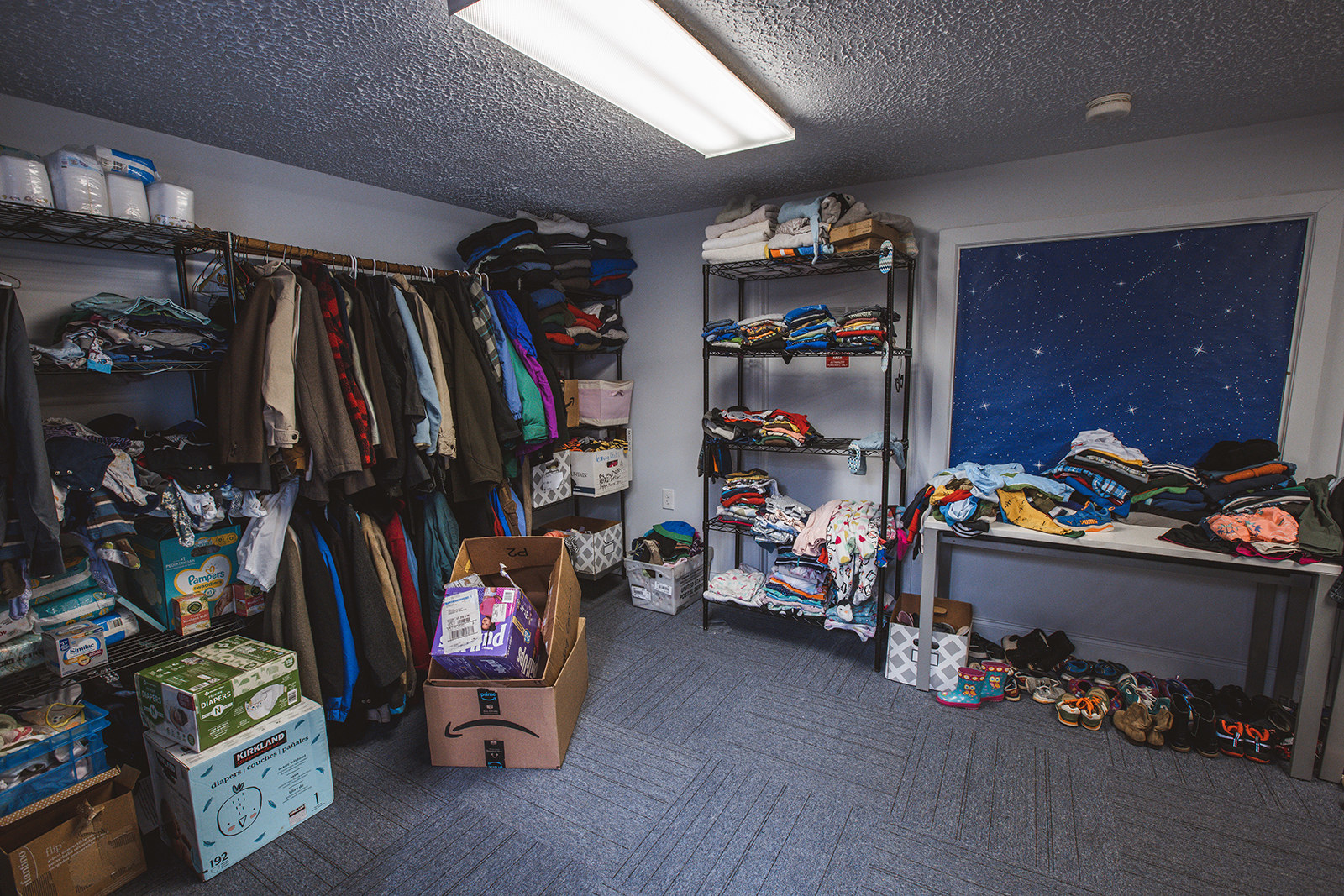
ALEXANDRIA, Virginia — Ahmad Nawid Amiry can still hear the gunfire. It was the morning of Aug. 15, and he was in the office where he worked as a procurement manager for US officials in Kabul. Gunfire in Afghanistan can be common at celebrations like weddings, but this time, there was dread in the air. Taliban militants were approaching the capital, completing a stunning sweep in which they easily toppled the Afghan army that Western nations had spent almost 20 years training.
Amiry asked his boss about the shots. Did he have any news? Yes: The US Embassy had advised them to shutter the office.
Amiry made his way out into the packed streets, full of tens of thousands of panicked people trying to reach the airport and escape. The country’s president fled that same day, but it took Amiry, his wife, and three daughters several more to navigate the chaos. With him clutching the Special Immigrant Visa (SIV) for which he’d already been approved for working with the Americans, he and his family were finally evacuated.
As their flight took off, Amiry was overcome — not with relief, but with sadness.
“We were actually in shock and depressed,” he recalled. “Me and my wife, during the day as we went to the airport, we would cry a lot that we had lost everything, that we were leaving everything here, especially my mom, my brother, and my sister. It was unbelievable for us.”
Flash forward to late January and Amiry, 31, was sitting in another office, this one in a Lutheran church in northern Virginia, with three other Muslim men. Amid wilting floral arrangements and children’s Thanksgiving drawings taped to the walls, the men were talking quietly and clutching the paperwork needed to begin their new lives in the US.
It wasn’t long ago that Amiry was like these men, a client of the Lutheran Immigration and Refugee Service (LIRS). But now he is their case manager.
“Sometimes you’re speechless. You can’t share how much you’re happy to help others, especially our Afghan brothers and sisters,” Amiry said. “They really need our help.”
It’s now been almost six months since the fall of Kabul prompted the largest military evacuation of refugees in history. In a matter of weeks, more than 76,000 Afghans arrived in the US, all but about 10,000 of whom have since been resettled in communities across the country. The sheer number of new arrivals posed significant challenges both for the government and the nine refugee resettlement agencies tasked with assisting them.

After years of the Trump administration cutting refugee admissions to historic lows, these agencies suddenly found themselves needing to staff up — and fast. That has meant that groups like LIRS have employed some of the new arrivals themselves.
“We are blessed to not just welcome Afghan refugees as our newest neighbors, but also as our newest colleagues,” said Krishanti O’Mara Vignarajah, president and CEO of LIRS. “These individuals — some of whom I met in August as clients — are talented, driven, resilient, eager to give back.”
Unlike many of their other fellow new arrivals, these Afghan workers are lucky enough to speak good English. Many also had SIVs after working alongside Americans for years in Afghanistan, and so were able to be released into the US much faster than the thousands who spent months awaiting refugee processing on military bases that became makeshift villages. But while this may be the Afghans’ first job in the US, it’s not an act of charity, O’Mara Vignarajah said. Their work at this critical time has been invaluable.
“It’s not just their linguistic and cultural capabilities,” she said. “It’s their firsthand experience of what it’s like to rebuild a life in a brand-new country. It’s the empathy. It’s the concrete understanding of the trials and tribulations that their clients are facing that they know quite personally.”
Other resettlement agencies have also been employing recent Afghan arrivals, often as translators to assist with the unprecedented deluge of refugees. HIAS spokesperson Bill Swersey said his Jewish American nonprofit had resettled 346 Afghans in the entire fiscal year ending Sept. 30. But in the months since, they’ve resettled more than 2,600.
“It really forced everyone in the resettlement world in the US to shift gears and work at a somewhat unfamiliar pace because we never had to resettle this many people, probably not since the Vietnamese boat people of the 1970s,” Swersey said. “It’s been remarkable.”
The story is the same in Cleveland, where Darren Hamm, the field office director for the US Committee for Refugees and Immigrants (USCRI), said the agency has resettled more than 300 Afghans since Kabul fell. At one point, his team processed more refugees in one week than they did in the entire previous year.
“You ride the wave and hope to stay in front,” he said.
Hamm’s office has also hired three Afghans who arrived in August. In addition to language and cultural understanding, Hamm said, his Afghan workers bring an invaluable empathy to their jobs.
“There’s something really unique about the plight of these folks in their really abrupt departure,” Hamm said. “There’s an inherent connection between people who have traveled the same path.”
"There’s an inherent connection between people who have traveled the same path."
But the LIRS office in northern Virginia stands out for the sheer number of Afghans on staff. Here at this makeshift office in a decidedly unglamorous church, 18 out of 20 staff are from Afghanistan, the majority of them recent arrivals. The office only launched at the end of November, but on the day BuzzFeed News visited in late January, they had just welcomed their 900th Afghan refugee client.
“Especially when you’re in an office where almost all of your clients are your own countrymen, your own Afghan fellows, that is always rewarding,” said Atiqullah Rahimi, 32, another LIRS case manager. “Families are in need, families are in trouble, and they come to you to solve their problems. When you can do that and they go back home happy, that is something that gives me a feeling that you have done something, that you have done something for the community.”
Rahimi and his fellow case managers are responsible for assisting the refugees in their first 90 days in the US: from picking them up at the airport and finding them housing, to helping them with groceries and applying for government benefits, to finding a job and enrolling in English classes.
The case managers work long hours and take calls day and night. Afghans will telephone with all sorts of questions. They may need help scheduling a medical appointment or navigating bureaucracy. Some of their questions are cultural: How do I know if an American is busy or mad? What’s the appropriate way to ask for an address? Sarah Cady, manager for field operations at the Alexandria office, said one man’s first concern was where his wife could get her eyebrows done.
“I know how the cultural shock is when you get here, especially coming from a country like Afghanistan,” said Maiwand Basiri, another August arrival turned case manager. “It’s two different systems. Totally different mindsets.”
It’s not just culture shock they’re dealing with. Many of the Afghans have felt shell-shocked in their first few weeks, traumatized by the hurried nature of their evacuation, O’Mara Vignarajah said. Sayad Ahmad Gawhari, a 50-year-old public health doctor in Afghanistan who now works as a health liaison at LIRS, recalled finally arriving with his wife and five children at a Westin hotel near DC’s airport and his whole family passing out, too tired to even eat. It had been weeks since they’d felt safe.
Many others, like LIRS finance coordinator Fatima Momin, 35, arrived with just the clothes on their backs. Momin was in tears as she recounted leaving her home in Kabul, where she worked at the US Embassy, and watching her two children sleep on the airport tarmac as they waited for an evacuation flight.
“I saw my kids sleeping on the ground for the first time,” Momin said. “It was cold. We didn’t have jackets, we didn’t have anything.”
To assist those like Momin, LIRS relies on donations from people across the country. As the Afghans move from hotels or temporary housing, often provided free by Airbnb, and into their own new homes, they can come to the LIRS office and collect everything from mattresses to toiletries to kitchen appliances.
On the day of BuzzFeed News’ visit, a man and his young son arrived in search of a stroller and size 4 diapers. They were taken to a basement overflowing with donated winter clothing, shoes, and children’s books. Cady, the field operations manager, explained they didn’t have what the man was looking for, but the overflowing LIRS storage warehouse 15 minutes away would. The man put his hand to his chest and thanked Cady for her kindness and hospitality through a translator.

Mirroring his gesture, she put her hand to her chest. “We’re so happy you’re here,” she said.
Case manager Rahimi, who arrived from Afghanistan in January 2020, said that the introduction to America is unique for each refugee, but those who lack English proficiency often struggle the hardest. He recalled seeing his Afghan neighbors take home all the mail in their mailbox and puzzle for a week over the contents. When they finally asked him for help, Rahimi had to explain to the man that he’d been stressing over junk mail.
“With just reading a piece of mail, they were struggling for one week. How will they go to a doctor’s appointment? How will they continue with a job? How will they help and support their kids with their studies?” Rahimi said. “They’re in pain, stressed, and having trouble. They need lots of help.”
Access to transport is another challenge. Most of the Afghans don’t yet have driving licenses, let alone cars, so even getting to a job (if they can find one) can be a hurdle.
“Everyone was telling us before that, here in this country, if you don’t have a car, you don’t have legs,” said Momin, the finance coordinator.
In Afghanistan, she was used to busy and noisy neighborhoods with streets full of people out walking and talking. Now she can only hear cars on highways and rarely sees people on the sidewalks. Until she and her husband can afford a vehicle, Momin gets to her job at the Alexandria office thanks to a partnership with Uber, which provided money to LIRS so refugees can take free rides.
"I know how the cultural shock is when you get here, especially coming from a country like Afghanistan. It’s two different systems. Totally different mindsets."
Case managers will also help the new Afghans build résumés and find jobs. Amid a tight labor market, there are many US companies that have already reached out to the refugee agencies to express their eagerness to recruit workers. Other businesses may need some convincing, as well as guidance on what to expect from a new Afghan employee who is not used to US work culture. A meat processing company is desperate for staff and willing to provide transport, but many Afghans can’t work in a nonhalal environment, for religious reasons.
For the Afghans, the most important thing is to find work, even if their first role is not their dream job or even one equal to what they had back home.
“The first thing is to get your feet in somewhere so that you can get the ball rolling,” Rahimi said.
He’s placed a pharmacist in a medical customer service role and is trying to get a doctor a job in hospital administration. It’s not perfect, but Rahimi hopes they’ll at least be able to learn the US medical system.
The refugee agencies also function as something of an emotional support system, especially for those who arrived in the US alone. Shinwari — who asked to be identified by only his last name to protect his family back in Afghanistan, where a monumental humanitarian crisis is unfolding — is one such arrival. As Taliban militants roamed Kabul’s streets in the chaotic and dangerous last days of evacuations, Shinwari and his wife felt it was too dangerous for them to to take their five young children through the crush of people. Instead, they made the difficult decision for him to try to reach the US and for her to take the family to her father’s place, hoping that he’d be able to bring them to the US soon.
Now he finds himself alone in a strange land, sending photos to his children via WhatsApp of snowstorms and bicycles that he tells them they’ll ride one day when they get to the US. He only lets his guard down during late-night calls with his wife when they’re honest with each other about how hard things are.
“I’m not the only one,” Shinwari said through tears. “There are thousands of people like me here. Thousands of people are faced with such kind of circumstances.”
To overcome his loneliness, Shinwari volunteers with LIRS, providing moral and linguistic support to other Afghans who feel tortured and lost like him. He recalled riding Washington, DC’s Metro for the first time with friends: They needed help purchasing tickets and ended up going the wrong way anyway. They all went to the mall to use some of the donated gift cards they’d been given, unaware that they couldn’t use Target or Walmart cards in other stores. Together, they are navigating a new and confusing country and learning along the way.
“I’m very happy because at least I can satisfy myself by helping other people,” Shinwari said. “I know how difficult life is outside.”
Shinwari now has both a sense of purpose and a hope that once his family gets here, they will, at last, have stability, perhaps for the first time in his life. When he was a baby, his mother carried him to Kabul from their eastern province to escape fighting between the Mujahideen and the Soviets. He was then displaced again when Western forces invaded in 2001.
“I don’t want to be nomadic anymore,” he said. “Being nomadic is a kind of headache for me. We were displaced so many times from war.
“We are really in debt of America,” he added as he contemplated his future here. “No matter what happened in Afghanistan, they did a great job for us. They evacuated us here. At least we are safe.”
"I don’t want to be nomadic anymore. Being nomadic is a kind of headache for me. We were displaced so many times from war."
Gawhari, the doctor turned LIRS health liaison, said he’d been most struck by two simple English phrases he keeps coming across in his new life in America. The first is, “How can I help you?” — a question he encounters from workers at restaurants, doctor’s offices, and when he gets in an Uber. The five words make him think of the kindness he’s encountered on his journey.
“Anywhere, if I face any challenge, somebody helped me,” he said with almost quiet reverence. “It’s amazing.”
The second question is: “How are you today?”
“It’s also amazing. I like that. Why? Because it shows life is so short. Almost life is a day,” he said. “It’s good to enjoy life and be happy and be helpful, be nice, be good. For a short life, a person should try to be nice, and life is so short.” ●

